Last updated: July 7, 2025
Growing up around horses and being deeply involved in their care and training—from managing racehorses to working with ranch horses—I’ve witnessed firsthand how intelligent and emotionally aware these animals are. Yet, many people still wonder: Are horses smart?
Drawing from my 25 years of hands-on experience, supported by scientific studies and expert insights in equine research, this guide offers practical, expert-backed insights to answer that question with depth and clarity. It explores various aspects of equine intelligence, including their cognitive, emotional, and social capabilities.
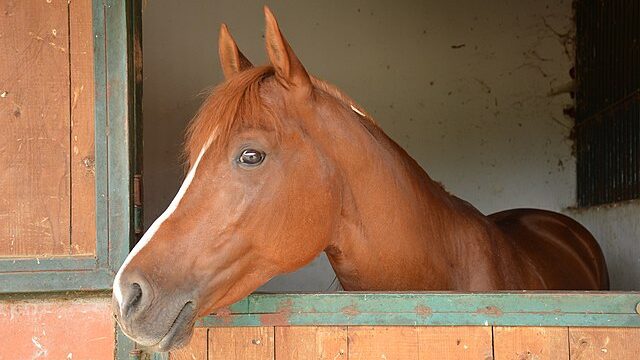
Are Horses Smart? Exploring Their Cognitive, Emotional, and Social Intelligence
Absolutely. Horses are remarkably intelligent, but their intelligence is unique and often underestimated. It shines through in their problem-solving skills, emotional awareness, memory, and complex communication. Understanding horse intelligence is key to building trust and creating effective training strategies that align with how they naturally think and behave.
A 2019 study published in Animals revealed that some horses demonstrate innovative problem-solving abilities when faced with new challenges, like figuring out how to access food from unfamiliar feeders. These behaviors were influenced by their emotional responses and persistence, suggesting that mental stimulation is crucial for cognitive development (Laureen Esch et al., 2019).
How Horses Use Memory to Solve Problems and Adapt
Horses have exceptional long-term memory, which significantly shapes their learning and behavior.
- Emotional Bonds: My mare, Aunt Addie, never forgot handlers she bonded with, even after extended absences. This emotional memory directly impacts how horses trust and interact with humans, making consistency in handling and training vital.
- Training Recall: I once had a filly who returned to training after several months off and immediately picked up where she left off. Horses’ ability to retain learned tasks allows for progressive training without needing to start over.
- Environmental Memory: One of my geldings consistently avoided a specific muddy patch after slipping there once, showing how horses remember and adapt to past negative experiences.
- Social Memory: Horses remember social hierarchies within a herd, knowing which horses to challenge or avoid. This influences how they integrate into new groups and affects their stress levels and behavior.
Understanding How Horses Communicate with Humans and Each Other
Horses are subtle yet effective communicators, and understanding these signals is essential for building trust and improving training outcomes.
- Horse-Human Dialogue: Horses often communicate discomfort or frustration through small cues. I had a filly who would pin her ears and flick her tail when overwhelmed, signaling me to slow down or adjust my training approach. Recognizing these signs can prevent anxiety and improve cooperation.
- Social Communication: In herds, horses use subtle cues—a flick of the ear, a shift in weight, or soft vocalizations—to establish boundaries and maintain social harmony. Trainers who observe these cues can better manage group dynamics.
- Emotional Sensitivity: Horses are sensitive to human emotions, responding to our moods and behaviors, which can directly impact their performance and well-being.
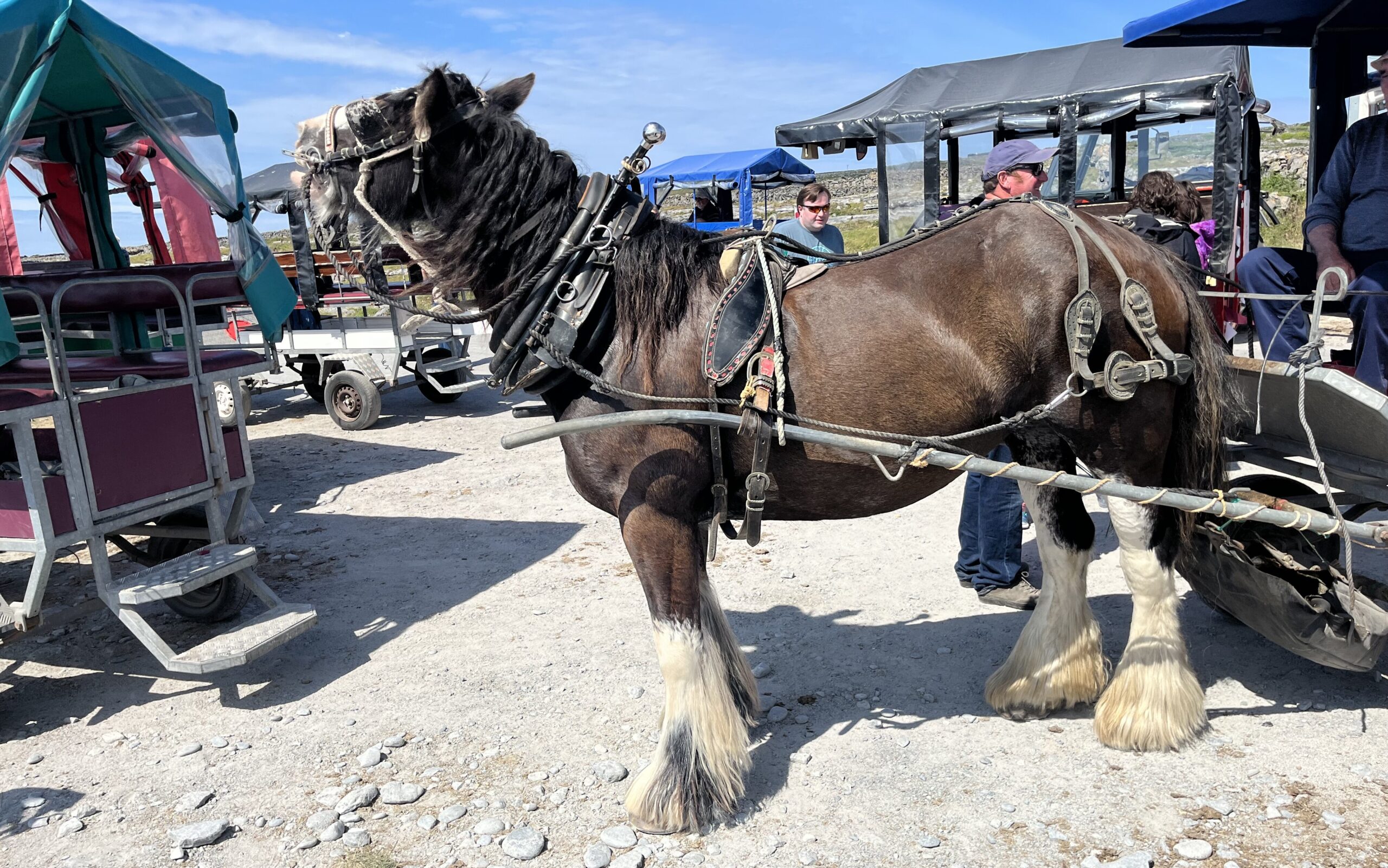
Types of Intelligence That Prove Horses Are Smart
From my experience, horses display several distinct forms of intelligence, each influencing how they learn, interact, and perform. Recognizing and understanding these types can greatly improve how we train and care for them.
Cognitive Intelligence
Horses are natural problem solvers. I had a mare who figured out how to unlatch the feed room door, highlighting how they can assess situations and adapt.
🆕 Updated Insight:
A groundbreaking 2024 study by Nottingham Trent University confirms that horses can change their problem-solving strategies when outcomes change, showcasing remarkable cognitive flexibility (Smith et al., 2024). This new research supports my observation that horses are adept problem solvers and reveals they can think ahead, plan, and strategically adjust their behavior based on changes in their environment.
This level of cognitive adaptability was not fully understood until this study, emphasizing the importance of mental stimulation in training. Incorporating enrichment tools like puzzle feeders, obstacle courses, and new challenges can help keep horses mentally sharp and engaged.
💡 Try This:
Introduce simple problem-solving tasks, like treat puzzles or safe obstacle navigation, to stimulate your horse’s mind and prevent boredom.
Social Intelligence
Horses are highly social animals with a keen awareness of herd dynamics. In my own herd, I’ve seen dominant horses form alliances while others learn to avoid conflict by recognizing social cues. Understanding these interactions is critical for introducing new horses to a group or managing herd-based training. Research shows that horses remember and adjust their behavior based on past social interactions, helping them navigate herd relationships effectively (Clemson University).
Emotional Intelligence
Horses are remarkably sensitive to human emotions. During a tense veterinary exam, I made a conscious effort to stay calm, and my typically nervous gelding stood quietly throughout the procedure. This reflects findings from a 2018 study by Proops et al., which demonstrated that horses can recognize and respond to human facial expressions, adjusting their behavior based on emotional cues (University of Sussex).
Spatial Intelligence
Horses excel at navigating their environment. One of my geldings confidently weaves through tight paddocks and tackles complex trail obstacles, showcasing his strong spatial awareness. Research suggests that horses develop spatial memory through exploration, which helps them remember safe routes and adapt to new environments (Equine learning behaviour).
Kinesthetic Intelligence
Horses have impressive body control and coordination. I once trained a young filly for barrel racing who instinctively balanced her speed and turns, adjusting her stride to maintain momentum. Activities like show jumping and dressage further highlight this intelligence, where horses must precisely coordinate movements. Developing this through conditioning and targeted exercises enhances their performance and reduces injury risk.
By recognizing and nurturing these different types of intelligence, we can build more effective training programs and foster stronger bonds with our horses. Backed by both research and personal experience, understanding equine intelligence leads to better communication, trust, and performance.
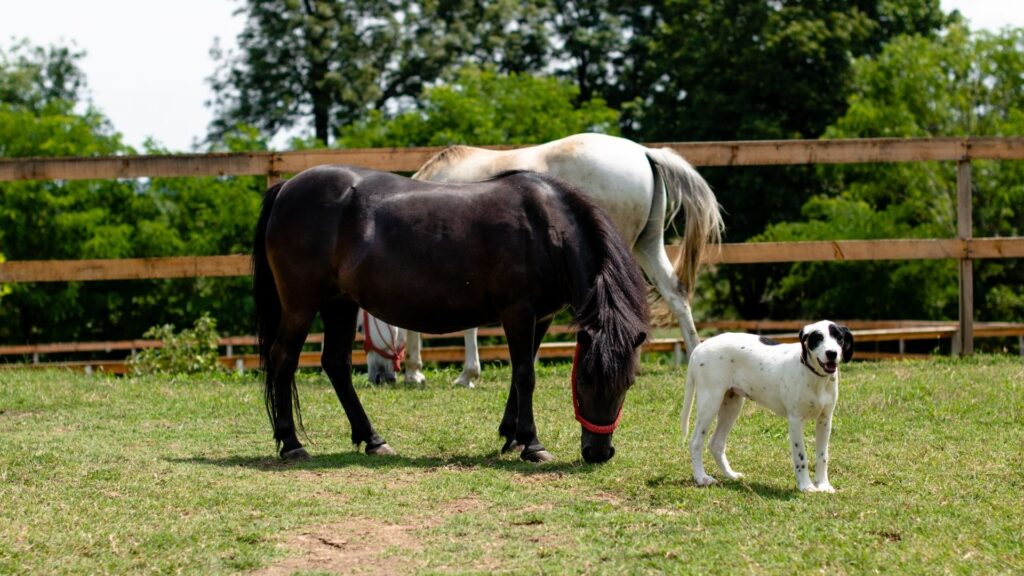
Comparing Horse Intelligence to Dogs: Who’s Smarter in Different Ways?
When comparing the intelligence of horses and dogs, it’s essential to recognize that each species excels in areas suited to their natural instincts and environments. Their intelligence serves different purposes shaped by their evolutionary backgrounds and relationships with humans.
Horses’ Strengths
Horses demonstrate remarkable emotional intelligence, problem-solving abilities, and adaptability:
- Emotional Intelligence: Horses can detect human emotions and respond accordingly, a skill that strengthens bonds with handlers. Studies have shown they can distinguish between happy and angry human facial expressions.
- Problem-Solving: Horses adapt to challenges in their environment, such as opening gates or navigating obstacles. A 2019 study revealed that some horses can devise innovative solutions to access food in unfamiliar situations (Fábregas et al., 2019).
- Adaptability: Their ability to adjust to new environments or routines makes them highly responsive in training and daily care. Horses that experience diverse environments develop stronger problem-solving skills (Proops et al., 2016).
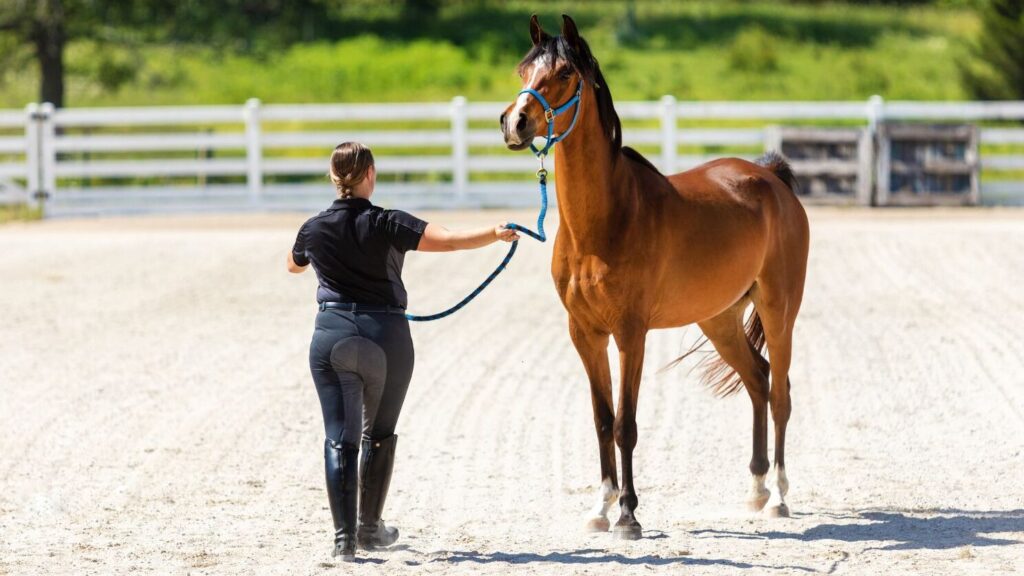
Dogs’ Strengths
Dogs excel in obedience, trainability, and human interaction:
- Trainability: Dogs have been bred for thousands of years to perform specific tasks, making them highly receptive to training and capable of learning commands quickly.
- Obedience: Dogs are naturally eager to please, making them effective in roles like service work, law enforcement, and search-and-rescue.
- Human Interaction: Dogs have a unique ability to read and respond to human body language and vocal cues, often outperforming other species in interpreting human intent.
Why the Comparison Matters
Rather than asking which species is “smarter,” it’s more meaningful to understand how each species is intelligent in ways that serve their survival and interaction with humans:
- Evolutionary Adaptation: Horses evolved as prey animals, developing emotional awareness and social intelligence to navigate herd dynamics and avoid threats.
- Domestication: Dogs evolved alongside humans as companions and working animals, prioritizing obedience and task-specific intelligence.
- Practical Application: Recognizing these differences allows owners and trainers to adapt their handling and training methods to suit each species’ natural abilities. (Journal of Animal Science)
By appreciating their distinct forms of intelligence, we can better support both horses and dogs in reaching their full potential.

Real-Life Examples That Prove Horses Are Smart
Horses have displayed remarkable intelligence throughout history. Two standout examples—Clever Hans and Lucas the Racehorse—illustrate how perceptive and capable horses can be.
Clever Hans
Clever Hans gained international fame in the early 1900s for seemingly solving math problems by tapping his hoof. For example, when asked, “What is 2×3?”, Hans would tap six times. It was later discovered that he was responding to subtle cues from his handler rather than performing arithmetic.
Clever Hans story, widely covered by outlets like The New York Times (read the article), highlights horses’ incredible sensitivity to human body language and environmental cues.
Lucas the Racehorse
Lucas, a retired racehorse, set a Guinness World Record by identifying 19 numbers in one minute. His achievement demonstrates the impressive learning and memory capacity horses can develop through positive reinforcement training. Lucas’s success challenges traditional assumptions about the limits of equine intelligence and showcases how adaptable and responsive horses can be when properly engaged.
These examples highlight the depth of horse intelligence, from interpreting subtle human signals to mastering complex learning tasks.
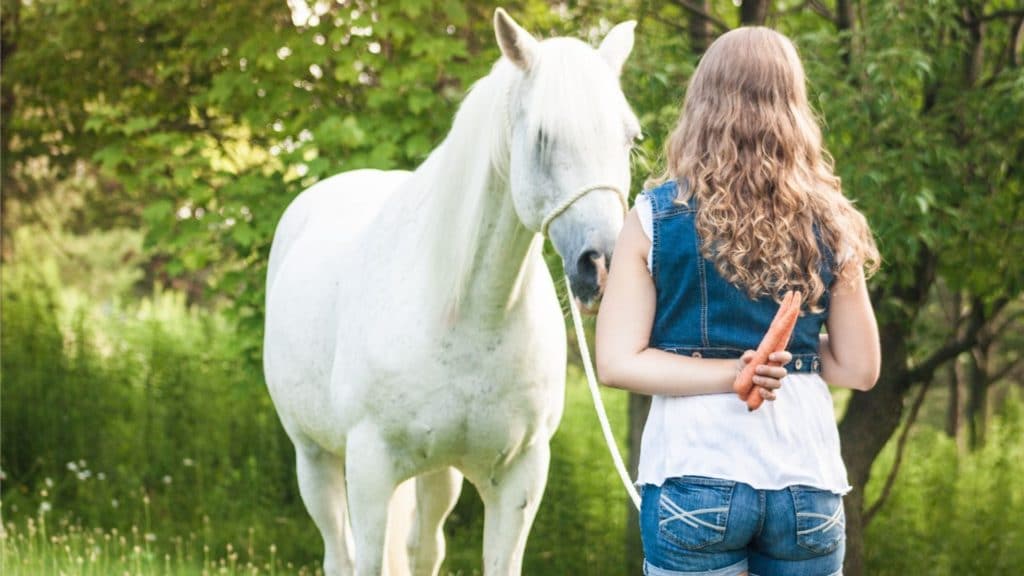
FAQs: Understanding How Smart Horses Are
Curious about how smart horses really are? These frequently asked questions dive deeper into their intelligence, problem-solving skills, and emotional awareness.
Can horses understand human emotions?
Yes. Studies show that horses can recognize and respond to human facial expressions and vocal tones, adjusting their behavior accordingly.
What kind of problem-solving abilities do horses have?
Horses demonstrate problem-solving skills in various ways, such as figuring out how to open gates or finding their way back home from unfamiliar locations. They can also learn to perform complex tasks through training.
What are some ways to improve a horse’s cognitive skills?
Incorporate mental stimulation through obstacle courses, puzzle feeders, and varied training routines. Positive reinforcement and exposing horses to new environments also encourage cognitive development.
How do horses communicate with each other?
Horses primarily communicate through body language—ear position, tail swishing, and body posture. Subtle vocalizations like whinnies and nickers also play a role in their social interactions.
Have you ever wondered how smart horses really are? From problem-solving to emotional connections, this video explores the incredible intelligence of horses and how they interact with the world around them. Let’s dive in!
Conclusion: Why Horses Are Smarter Than We Think
Horses are highly intelligent, emotionally aware, and socially complex animals. Recognizing and respecting their intelligence allows us to build stronger bonds, improve training outcomes, and enhance their overall well-being. By understanding how horses think and feel, we can create more meaningful and rewarding relationships.
Get Involved
Have you witnessed your horse solving a problem or showing emotional awareness? Share your stories in the comments below! For more expert insights on horse care and behavior, subscribe to our newsletter or contact me directly with any questions.
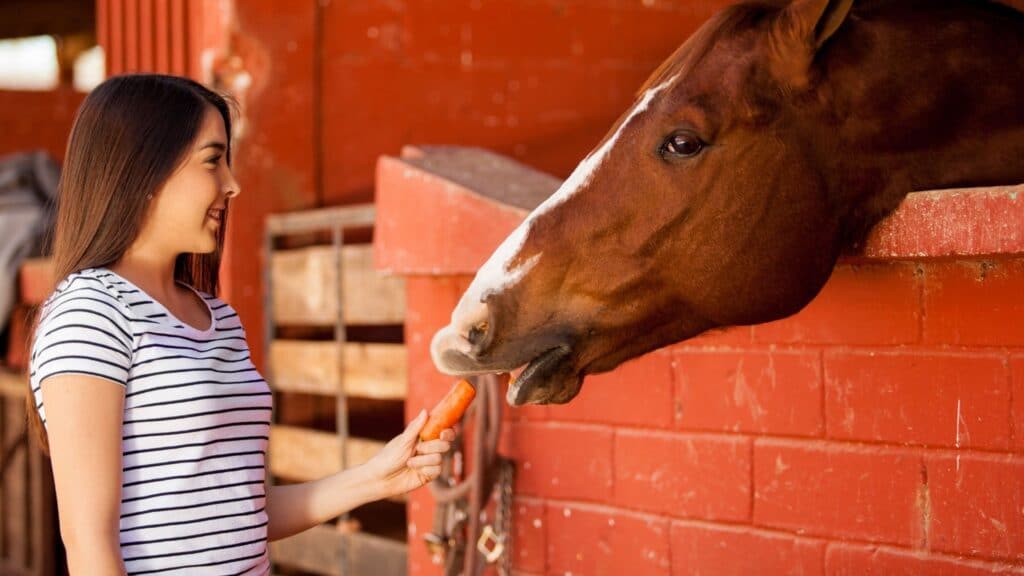

About the Author: Miles Henry
Lifelong Horseman | Racehorse Owner | Published Author
Miles Henry brings over 25 years of hands-on experience training and owning Thoroughbred racehorses. Raised with Quarter Horses and Appaloosas, he’s spent a lifetime learning from horses—on the track, in the barn, and in the field. Today, he runs a small but successful racing stable in Louisiana and shares real-world insights on HorseRacingSense.com, helping horse owners, fans, and bettors navigate the sport with confidence.
📚 Books: View Miles’s books on Amazon »
🎧 Podcast Guest: Animal Tales Ep. 32 |
YouTube Interview
📩 Newsletter: Sign up for racing tips and horse care advice »
🔗 Follow Miles:
Twitter |
Facebook |
YouTube


